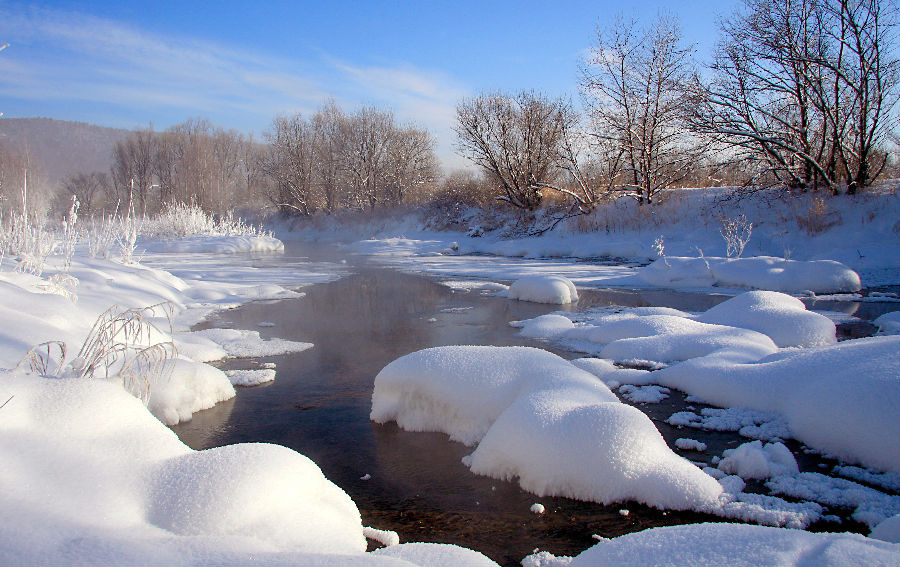Significantly warmer winters have played an important role in the ongoing decline in EU greenhouse gas emissions.
暖冬对欧盟国家温室气体排放量的持续下降起到了显著作用。
According to a new report, the use of CO2 and other gases across the bloc dropped by almost a quarter between 1990 and 2014. A switch from coal to natural gas, the recession and the rise of renewable energy all contributed to the fall. The latest figures show that a milder winter was the major factor in the reduction.
根据一项最新报告显示,欧盟国家二氧化碳及其他气体的总排放量在1990年至2014年间下降了近四分之一。由煤炭转用天然气、经济衰退以及可再生能源的兴起都对这一下降起到了作用。而最新数据表明,一个更暖和的冬天是这一数据下降的最主要因素。

Overall from 1990 to 2014 emissions across the member states of the European Union fell by 24.4%, easily beating the 2020 target of 20% put forward as part of the first international agreement on climate change, the Kyoto Protocol.
总的来说,1990年至2014年期间,欧盟成员国的温室气体总排放量减少了24.4%,大大超过首个国际气候变化协议“京都议定书”所定下的2020年减排20%的目标。
Importantly, the EU managed to reduce emissions in this period while economic output rose by 47%.
重要的是,欧盟是在经济产量上升47%的同时成功降低了排放量。
The keys to cutting warming emissions over the period have been a big switch from coal to gas for electricity production, the rise of renewable energy, better home insulation and the economic recession of 2008. But milder weather has contributed as well. In 2014, when emissions fell by 4.1%, it was the most important factor.
而这一时间温室气体排放量减少的关键在于:发电由使用煤炭转向使用天然气,可再生能源的兴起,更优良的房屋绝缘以及2008年的经济衰退。但是暖冬也起到了同样重要的作用。2014年排放量下降的4.1%中,暖冬是最主要的因素。
"If you look at the 24 year period, there is some warming in Europe and this has contributed to lower heat demand and lower greenhouse gas emissions," said Ricardo Fernandez from the European Environment Agency who compiled the figures. "In the last two years it has even been stronger - in 2014 you can see that, while its not the only factor, by and large it's due to the milder winter conditions in Europe."
负责收集这些数据的欧洲环境总署的里卡多·费尔南德兹表示:“如果回顾这24年,你会发现欧洲气候在变暖,而这减少了人们对暖气的需求并降低了温室气体排放。过去两年,减排效果更为显著,可以看出2014年的减排大致上是因为欧洲冬天气候趋暖所致。虽然这不是唯一的因素。”
That mild, wet winter was felt particularly in Germany and the UK, and it is reductions in domestic heating demand in both those countries that accounts for just under half the decline across the 28 states that year.
德国和英国的冬天尤其令人觉得温和、潮湿,而家庭暖气需求的减少使这两个国家的减排量占欧盟28国近一半的总减排量。
Overall though, over the past 24 years the UK and Germany have both been major movers in helping to reduce greenhouse gases - in that time UK emissions have dropped by by 34.3%.
总的来说,英国与德国是过去24年来欧盟减排的最大推动力,英国在这期间减排多达34.3%。













